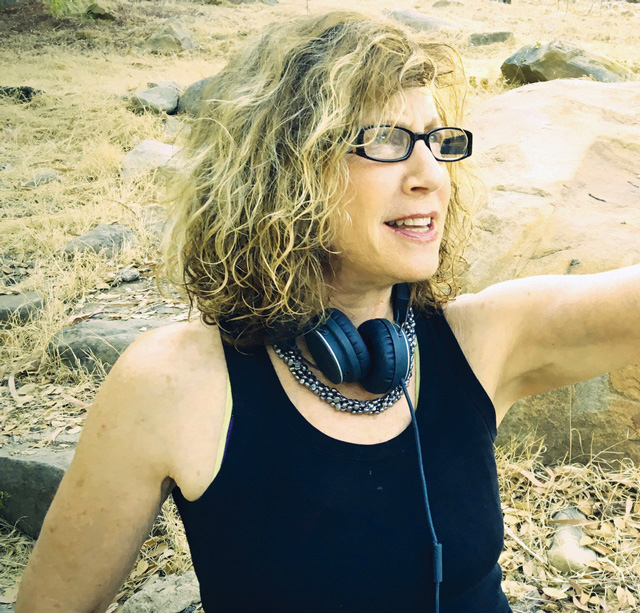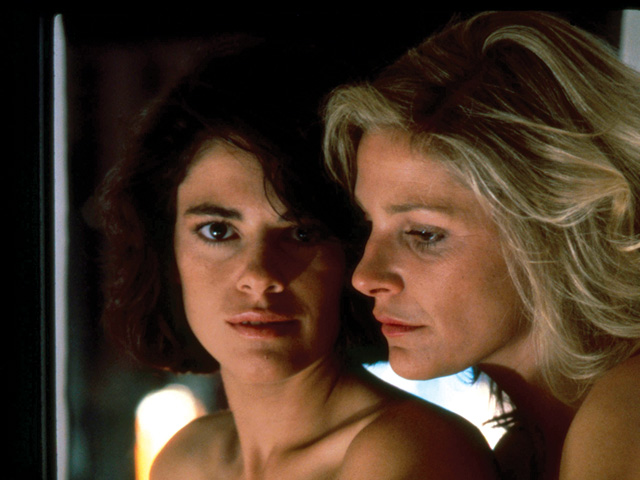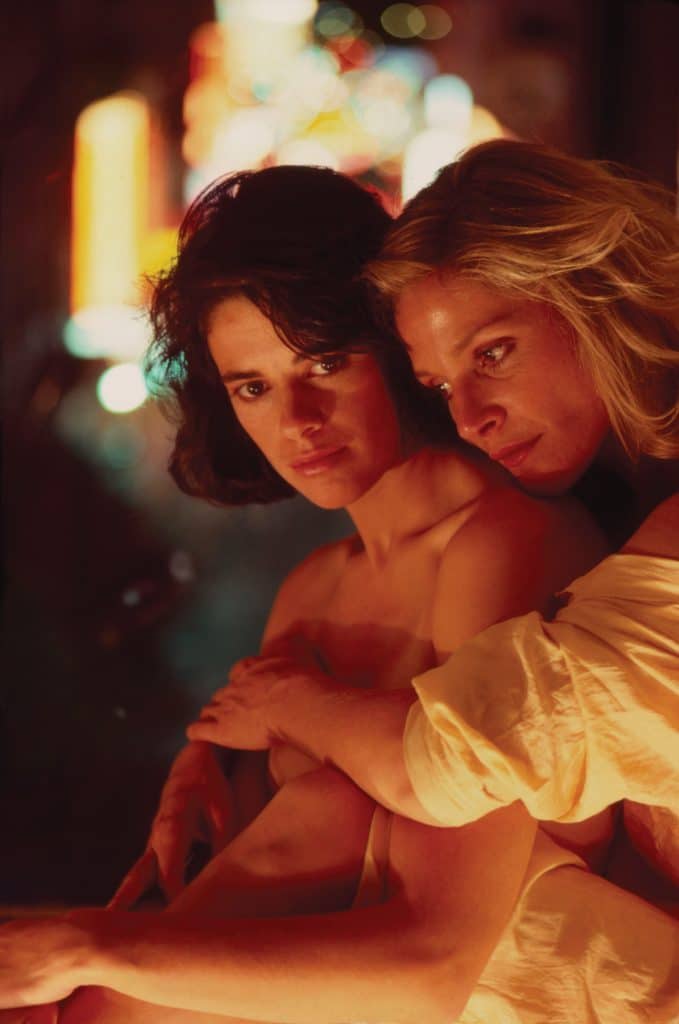All images courtesy of Criterion Collection
by Rebecca M. Alvin
When Donna Deitch’s Desert Hearts came out in 1985, the topic of two women in love with each other was still glaringly uncommon in movies—not only American, Hollywood movies. Even in the art-house world of independent and foreign-language films, depicting lesbian romance in a way that didn’t solely cater to male voyeurism and that didn’t include one or both of the women suffering terrible consequences was certainly rare. In fact, lesbian relationships of any kind were almost entirely absent from the screen, with only a handful of exceptions, such as John Sayles’ Lianna (1983), Robert Towne’s Personal Best (1982), and Tony Scott’s The Hunger (1983), making it to major release in the U.S. So when Desert Hearts was not only made, but picked up for distribution by Samuel Goldwyn Company, it was without a doubt a breakthrough moment.
Looking back, Deitch recalls, “When you’re making a film, you just sort of hope that you just can sell it. With an independent film without distribution, that’s just sort of the first goal.” She funded the film by selling shares in it to various people for $15,000 each. The resulting film is beautifully shot, with great attention to its desert location. But of course, it’s main appeal, which still holds up despite the many changes with regard to lesbians in American society today, is the relationship between Professor Vivian Bell (Helen Shaver), who has come to Reno to get a divorce, and the younger, wilder Cay (Patricia Charbonneau) who struggles with being an out lesbian in a community that is not all that enlightened.
“Finding the perfect actors for this movie was in part because of the controversial piece of it. I found some pretty fearless people who were also brilliant actors.”

The film was recently reissued on DVD and Blu-Ray by the Criterion Collection, and it is screening during Women’s Week this year at Waters Edge Cinema, with Deitch in attendance. She will also be the keynote speaker at the Provincetown Film Society’s 3rd Annual Women Filmmaker’s Residency Brunch this Friday at Harbor Lounge.
Perhaps it shouldn’t matter who the director of a film is, but sometimes it does. And in the case of Desert Hearts, this reality did not escape notice of critics, who immediately saw—probably for the first time—what a lesbian relationship might look like when created and controlled by a lesbian writer (the movie is based on Jane Rule’s novel of the same name) and a lesbian director.
Nowhere is this more apparent than in the love scene between Vivian and Cay. “When I was making Desert Hearts, and thinking about it, that love scene was at the heart of it, because in my mind there’s no sense in making a love story between two women without a love scene,” explains Deitch.
Deitch was determined to carve a new cinematic path for lesbians. “That was my initial inspiration and motivation to do this, to make a movie that did not end in a bisexual triangle or suicide. So in the course of trying to decide how I wanted to make the movie, and shoot that love scene, I did look at a lot of love scenes just to sort of get an idea of what worked and what didn’t and why, sort of an analysis, you know. For me it was just so important, because it’s also a coming-out story, that this love scene was not just sexual but that it was emotional, and the journey of the sexual awakening and the emotional side of that experience go hand-in-hand. Because without the emotional, the sexual wouldn’t mean much,” she adds.

Actresses Shaver and Charbonneau also took a risk. “In the time that I was making this movie, agents and managers were just telling their clients not to [audition]. They didn’t want to have anything to do with this movie because it was so controversial… And finding the perfect actors for this movie was in part because of the controversial piece of it. I found some pretty fearless people who were also brilliant actors,” Deitch says. The actors, Helen Shaver in particular and Patricia Charbonneau, are so brilliant and so committed to telling the story along with me that they just gave it everything they had, and we all were on the same track of telling the same story, full out.”
In 2017 the cinematic landscape for LGBT characters, stories, and filmmakers has been transformed. Major releases in the 1990s through today have brought more diversity to the perspectives and stories accessible to everyone, and the shifting sands of exhibition have made it easier to put one’s work out there. Deitch has spent these past three decades working predominantly in television, a field that has been more open to female filmmakers by and large.
“You know my first boss after Desert Hearts was Oprah Winfrey because she saw the movie and hired me to direct The Women of Brewster Place,” Deitch says. “People like Shonda Rhimes and Jill Soloway and Lena Dunham, those are the show runners, the creators, who are the people who hire the directors. So as women advance in these positions, and so many of them want to hire women, you see the numbers go up, and that’s what’s happening now.”
But Deitch says it’s time to return to her indie roots. And what better project to start with than a sequel to Desert Hearts?
“It’s an unconventional sequel. And it takes place in the heart of the second wave of the women’s liberation movement in Manhattan, 1968 to 70,” she hints. “It’s some of the same [characters] and some new… Desert Hearts was a coming-out story, and coming out means at its heart that you are being your authentic self or you are being authentic to who you feel yourself to be. And if ever there was a time in America where masses of women were doing that, it was during the women’s movement.”
The project is currently still in the script phase and, she says, soon to be in the fundraising stage. “Maybe I can raise some money in Provincetown,” she adds enthusiastically.
Desert Hearts is screening daily at Waters Edge Cinema, 237 Commercial St., 2nd Fl., Provincetown, through October 15. On Friday, October 13, 11 a.m. – 1 p.m. Donna Deitch will be the keynote speaker at the Women Filmmaker’s Residency Benefit Brunch at Harbor Lounge, 359 Commercial St., Provincetown. Go to the box office or visit watersedgecinema for tickets and showtimes, as well as for more information about the Brunch.











